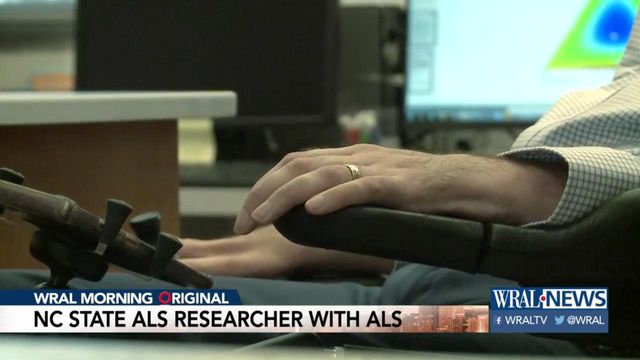NC State researcher keeps working despite ALS diagnosis
A researcher at North Carolina State University is in a hurry to learn more about ALS and help future patients before the progressive disease robs him of his own life.
Posted — UpdatedDr. Michael Bereman first noticed symptoms of amyotrophic lateral sclerosis, also known as Lou Gehrig's Disease, in 2015 at the age of 33. Increasing muscle weakness eventually led the family man and highly regarded N.C. State biology professor to a motorized chair and special computer tools to help him write.
He also become more dependent on lab assistants like Rubia Martin.
"When I first met Michael, I could not tell he was sick," said Martin, who is also a lab assistant and graduate student at N.C. State. "It was really sad to see the progression of the disease in the past few years."
Although his muscles have grown weaker, Dr. Bereman's intellect has never waned.
"That's very characteristic of ALS," he said. "Often times, the mind goes untouched."
Bereman refocused his research to help doctors provide an earlier diagnosis and more accurate prognosis for future patients, identifying proteins that may be most useful in measuring disease progression or for testing new drugs.
"Michael is one of the smartest people I have ever met in my life," said Martin.
"It's nice to be in the lab and have a little bit of a distraction from this awful disease," Bereman said.
• Credits
Copyright 2024 by Capitol Broadcasting Company. All rights reserved. This material may not be published, broadcast, rewritten or redistributed.





